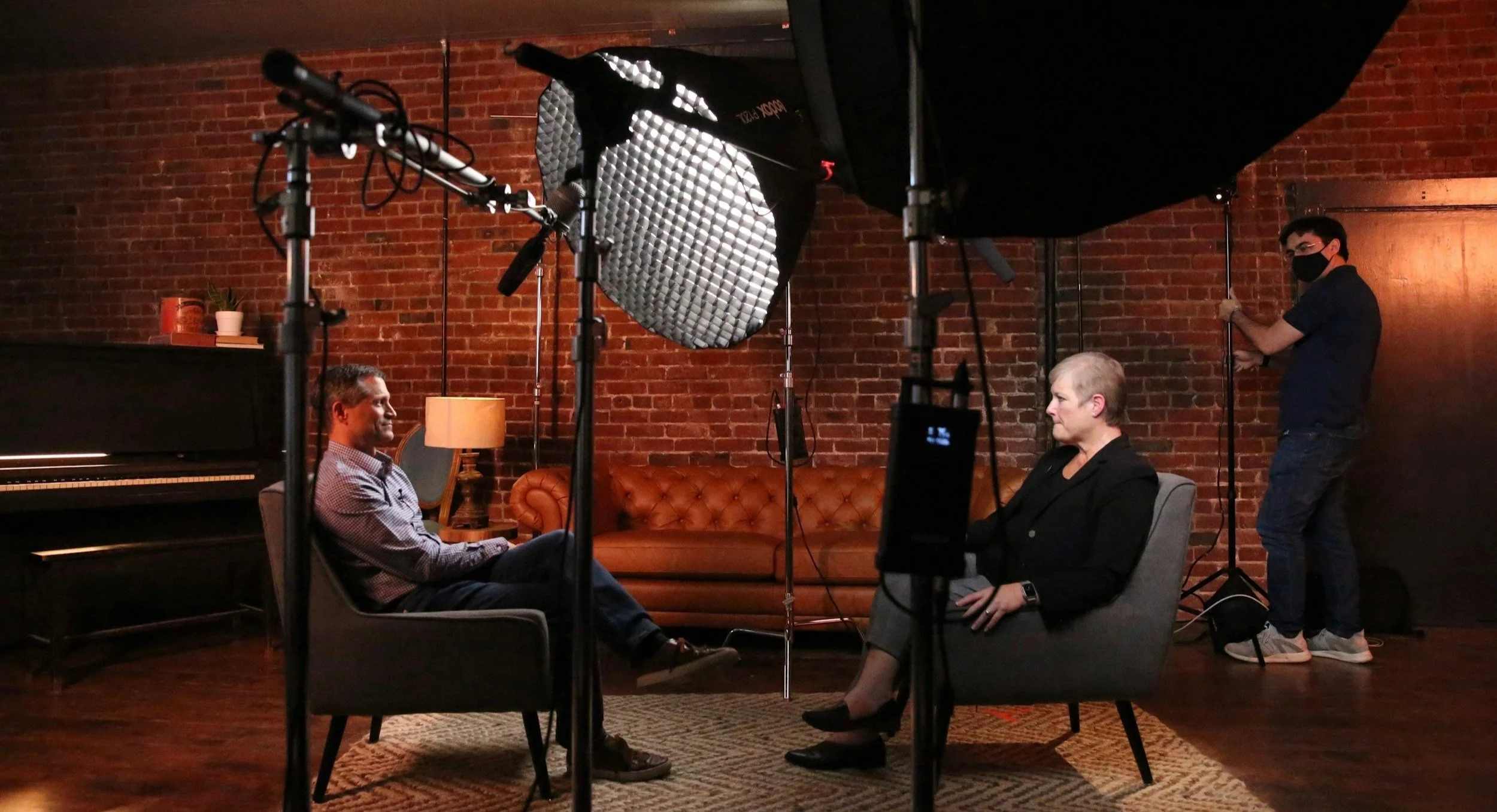Podcast Formats to Build Your Brand
Podcasting is an effective medium for brand-building, knowledge dissemination, and audience engagement. It’s deeply personal and choosing the right format is an essential part of the production process. You need to meet your objectives, differentiate among two million podcasts, and ensure listener retention. This guide will help you think about the podcast format that aligns with your brand.
Establish Clear Objectives
We’re going to talk formats in this post, but before anything else, have you set clear objectives for your podcast? Are you aiming to educate, entertain, position yourself as an industry thought leader, or generate leads? When listeners open the app, is it clear what they’re investing time in? The format must support these goals. Common objectives include:
Establishing authority – Best suited for interview-based or panel discussions
Capturing audience engagement – Narrative storytelling or roundtable discussions often perform well
Providing educational content – Solo deep dives or expert interviews can be most effective
Enhancing brand visibility – Case studies, brand storytelling, or Q&A sessions align well
Clearly defining your objectives early facilitates structured episode planning, optimizes segment length, and ensures targeted guest selection that reinforces your broader content strategy.
Differentiate Through Formats
With thousands of podcasts addressing overlapping themes, even in brand podcasting, differentiation is imperative. Your chosen format can serve as a differentiator. Consider:
Hybrid formats – Combining solo commentary with interviews to enrich content diversity
Audience interactivity – Incorporating live Q&A, listener-submitted topics, or behind-the-scenes content
Leveraging subject-matter expertise – Offering unique insights or a novel perspective on industry discussions
Multimedia integration – Expanding reach by incorporating video for YouTube or producing snippets for social media engagement
Refining and iterating on your format based on audience response ensures long-term viability and a distinctive presence.
Listen to Competitor and Peer Podcasts
It sounds obvious but an informed analysis of competitors and peers can illuminate gaps and opportunities within your niche. Think about:
Strengths and weaknesses – Identify what other business podcasts are executing well, where they underperform; what’s engaging and interesting and what sounds like a corporate ad
Engagement strategies – Work out which formats sustain audience interest and participation, tweak those that don’t
Patterns – Determine whether competitors adhere to rigid formats or experiment with variety
Production techniques – What level of editing and narrative structure? Is there immersive sound design or off-the-cuff authenticity? Interviews or intimate discussion?
Insights derived from listening to competitor and peer podcasts will empower you to craft a format that is both compelling and distinct from other offerings.
What Does Your Audience Want?
Motherhood and apple pie: your podcast’s primary function is to serve its listeners, making audience preferences critical in any format discussion. Discover your target demographic’s preferences:
Conduct surveys or social media polls
Engage directly with potential listeners in online forums or networking events
Observe successful elements within similar podcasts
Experiment with varying episode lengths to identify optimal engagement
Some listeners prefer concise, digestible episodes, while others want something more in-depth. You can achieve both—offering short-form clips alongside extended deep dives.
Production Capabilities and Scalability
Selecting a sustainable format requires evaluating personal competencies and available resources. Key considerations include:
Hosting skills – Do you excel in structured storytelling, spontaneous dialogue, or scripted narration?
Technical proficiency – Can you manage high-level audio production, or would a lower-editing format be more viable?
Time investment – Some formats, such as investigative storytelling, require extensive editing, while conversation-based formats demand less post-production.
Long-term feasibility – Can this format be maintained consistently without leading to resource exhaustion?
Selecting a sustainable format reduces burnout risks and fosters content consistency. Outsourcing certain production aspects can further enhance scalability and maintain quality.
Alignment with Brand Identity
For businesses integrating a podcast into their brand strategy, consistency in messaging is paramount. Your chosen format will have an impact on brand perception. Ask:
Does this format reflect the brand’s tone and values?
Will it resonate authentically with the target audience?
Can podcast content be seamlessly repurposed for other channels, such as blogs, newsletters, and video content?
How does this format integrate with existing marketing assets (e.g., webinars, reports, or articles)?
A well-integrated podcast strengthens brand equity, fosters trust, and ensures coherence across communication platforms.
Iteration and Optimization
Even with meticulous planning, refinement is an ongoing process. Adopt an iterative approach by:
Test diverse episode lengths and structures.
Experiment with various guest formats, from solo episodes to expert roundtables.
Adjust content themes in response to audience feedback.
Modify production styles, from highly edited segments to more spontaneous discussions.
Flexibility and responsiveness to listener analytics enable podcasts to remain dynamic and adaptive to industry trends.
Selecting the right podcast format involves finding the balance between business objectives, audience engagement, differentiation, and feasibility. The most successful podcasts are not only well-produced but also fulfill a clear purpose, respect the audience’s time, and retain listeners by constantly evolving.
Whether employing solo narratives, expert interviews, panel discussions, or in-depth storytelling, a podcast’s format should remain adaptable to evolving listener expectations and industry shifts. Monitoring emerging trends and leveraging audience insights ensures continuous refinement and longevity.
For expert podcasting insights and production support, drop us a line at hello@1878.studio



